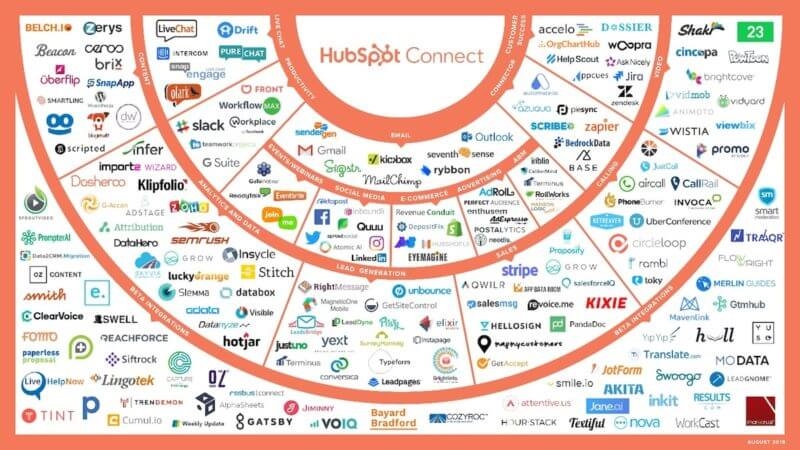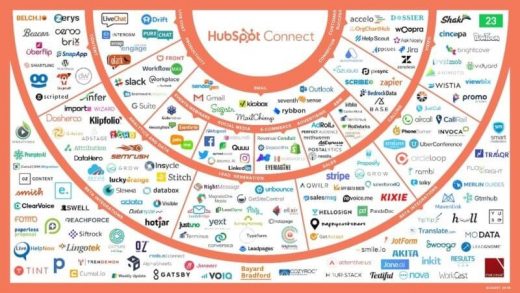HubSpot: We’re now focusing on being a platform vendor
Following announcements of an expanded AWS partnership and a new venture fund, the company says it is re-orienting itself around providing a CX ecosystem for SMBs.

From the HubSpot web site
HubSpot is moving its focus from product suite to platform.
That was the word from CEO Brian Halligan, in a tweet Tuesday that referenced two new announcements.
HubSpot announced a big partnership with Amazon Web Services and a $30million venture fund today, moving us from an application vendor to a platform vendor.
— Brian Halligan (@bhalligan) December 11, 2018
AWS partnership, HubSpot Ventures. The AWS announcement expands HubSpot’s current partnership into a three-year commitment that provides more benefits for vendors belonging to HubSpot’s current Connect ecosystem of integrated applications as well as for those in its Startups program.
For instance, companies in Startups will now receive memberships and credits in the AWS Activate program that provides infrastructure resources for startups. AWS will also co-invest in building an ecosystem for HubSpot partners, and partners will receive AWS credits.
Additionally, HubSpot announced the launch of a $30 million fund, HubSpot Ventures, to invest in companies that support its ecosystem.
Shifting to a platform focus. HubSpot VP of Platform Ecosystem Scott Brinker (and program chair of our MarTech conferences) told me that these announcements and Halligan’s tweet do not represent a major departure for the Cambridge, MA-based company.
HubSpot has been working with AWS, Brinker noted, and has individually invested in several companies. And the Company’s Connect ecosystem and other efforts have been growing a community of integrated vendors.
But now, he said, the focus is shifting from the company’s product suite to acting as a platform for the growing population of applications that support interactions with HubSpot and each other.
Focused on customer experience. When it was founded in 2005, Brinker said, HubSpot focused on its inbound marketing products, followed by the addition of sales-oriented features and a customer relationship management system. Then, the products became an interconnected suite, opened up to outside vendors via APIs.
Throughout that time, he said, “the heart of the business was our own products.” Now, “it’s focusing on being a platform ecosystem,” with developer support and the ability to orchestrate the capabilities of outside vendors through HubSpot.
Why you should care. Brinker readily acknowledged there are many platform-based ecosystems out there these days, pointing to Salesforce, Spotify and Slack. Aside from the centrality of the HubSpot suite of tools, he said, the difference here is an emphasis on startups and smaller businesses. The HubSpot platform will be focused on providing “customer experience for SMB.”
This story first appeared on MarTech Today. For more on marketing technology, click here.
Marketing Land – Internet Marketing News, Strategies & Tips
(19)



